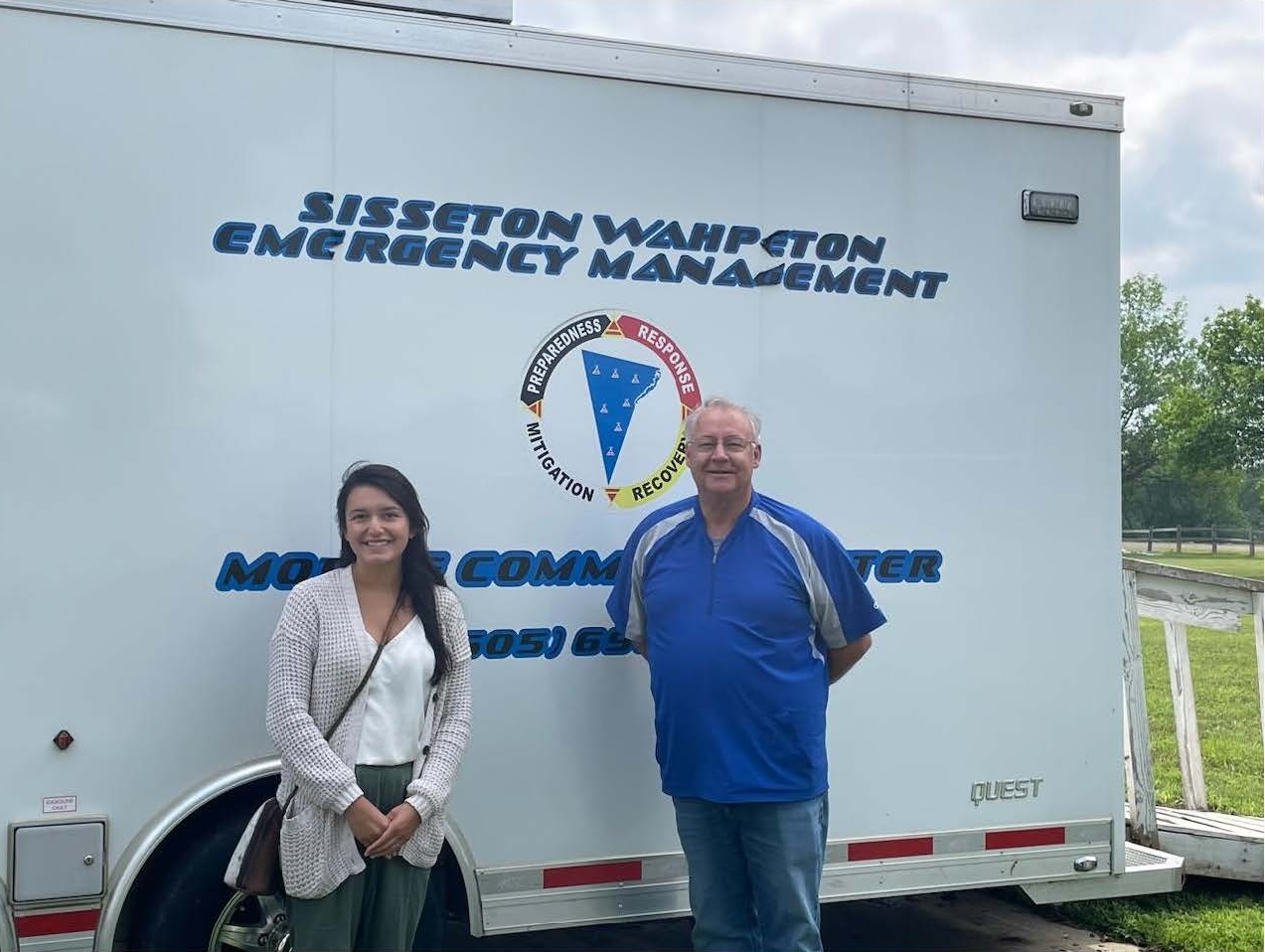Renewed spaces, renewed lives: Mold remediation services reshape tribal living

“We broke waves in providing trust to other tribal families who were previously uncomfortable or uncertain about receiving assistance. Families didn’t know where to look for help.” – Jim Pearson, SWO Emergency Manager
During the winter 2018 and spring 2019, the Sisseton Wahpeton Oyate (SWO) Nation of the Lake Traverse Reservation in northeastern South Dakota and southeastern North Dakota faced destructive flooding and winter storms.
In December, winter storms caused blizzard-like conditions that lasted for days, forcing schools to close, causing power outages and road closures, and stranding people in safe and unsafe locations.
Snowfall and above-average temperatures in the spring contributed to flooding, causing millions of dollars worth of damage to homes, businesses and infrastructure.
Limited housing options in the area forced families to make repairs themselves or seek refuge with relatives. The resulting displacement created health and safety issues for those who remained in homes damaged by the disasters and those who had moved in, doubling or tripling up with other families.
The community found strength in unity and supported each other in the face of displacement, safety concerns and health crises. CDP’s Midwest Early Recovery Fund provided a grant to SWO Nation for their Emergency Management Division to increase the community’s capacity for disaster recovery. SWO leveraged the funding to create a plan to address needs and assess homes, bolster training and education on mold remediation, and hire a disaster recovery coordinator and a case manager whose responsibilities included housing assessments and mold remediation.
Throughout the program, challenges were met with determination. A lack of trust due to historical mistrust, cultural differences or uncertainty about the program’s legitimacy caused some tribal families to have reservations about seeking assistance. SWO broke down these barriers and built trust with families by actively engaging with the community through radio stations and television ads. These efforts went a long way to address concerns about the program’s legitimacy, reassure families that it was not a scam, and give them the confidence to allow SWO into their homes to conduct assessments and provide assistance.
Although SWO faced hurdles in launching the program, its impact was profound once it became operational. Approximately 18-20 homes, housing 10-11 people each, received support for mold remediation and information about the dangers of mold and how to identify it. This significantly improved the lives of those affected.
In some cases, basements filled with six feet of water became breeding grounds for mold, affecting extended families. The team addressed critical needs through the Disaster Assistance Response Employee (DARE) program, offering direct assistance to families in distress.
Beyond repairing homes, the program also focused on educating the community about mold, distributing cleanup kits and conducting mold testing. Families benefitted from the newfound knowledge and experienced positive changes in their health. SWO also collaborated with tribal housing to install smoke detectors to ensure homes met annual inspection standards.
“Once unaware of the health issues caused by hidden mold, families saw improvements in their well-being. One family of seven, forced to relocate due to severe mold problems, found relief in the program’s efforts. As a result, the homes were repaired, and the children returned to their original schools.” – Jim Pearson, SWO Emergency Manager
CDP is proud to partner with SWO to support their efforts to provide unwavering help and disaster recovery assistance in their local tribal communities. SWO’s response to these disasters showcases resilience, compassion and unity amid the most challenging circumstances.
Story by Juanicia Crump